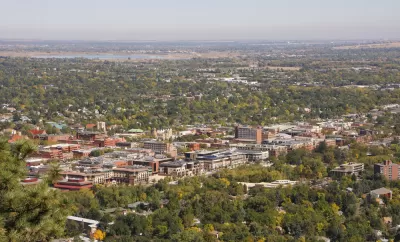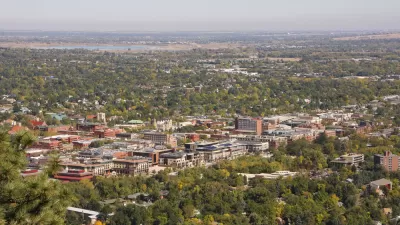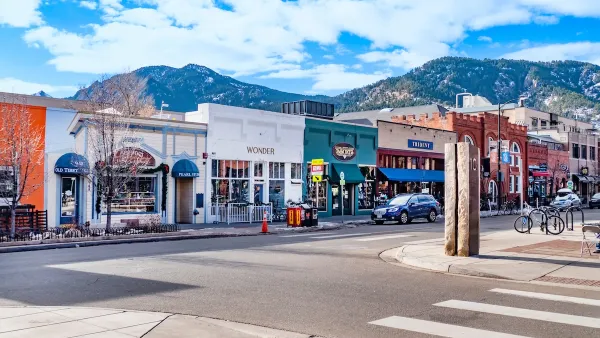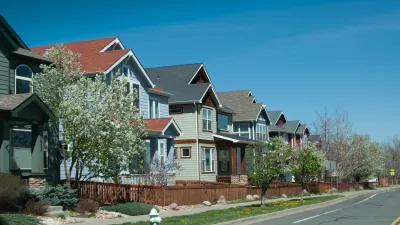Boulder declared a moratorium on development in a federally designated Opportunity Zone back in December. Here's how the decision has played out so far.

Oscar Perry Abello reports from Boulder, Colorado, the city pressed "pause" on development in a Census tract designated as an Opportunity Zone (a federal program that gives investors tax breaks for making certain investments in the area).
"Uncertain whether the federal program would benefit residents in or near Colorado census tract 122.03, let alone the rest of the city, Boulder City Council temporarily suspended the acceptance of building permits, site review applications and other development applications for many types of projects in the Opportunity Zone," according to Abello.
Specially, the action declared a moratorium on "development that would result in adding non-residential floor area, any demolition that removes multifamily dwelling units or any non-residential floor area, and the creation of any new dwelling units "that do not meet the requirements of the ordinance,'" explains Abello.
Still, Boulder is allowing exemptions to the moratorium, claiming the exemptions reflect the vision established by the Boulder Valley Comprehensive Plan, approved in 2017. Abello explains in a lot more detail the politics surrounding the decision, the exemptions, and the prospects for the Opportunity Zone program in Boulder in the future.
FULL STORY: Boulder Presses Pause on Some Opportunity Zone Development

Planetizen Federal Action Tracker
A weekly monitor of how Trump’s orders and actions are impacting planners and planning in America.

Chicago’s Ghost Rails
Just beneath the surface of the modern city lie the remnants of its expansive early 20th-century streetcar system.

San Antonio and Austin are Fusing Into one Massive Megaregion
The region spanning the two central Texas cities is growing fast, posing challenges for local infrastructure and water supplies.

Since Zion's Shuttles Went Electric “The Smog is Gone”
Visitors to Zion National Park can enjoy the canyon via the nation’s first fully electric park shuttle system.

Trump Distributing DOT Safety Funds at 1/10 Rate of Biden
Funds for Safe Streets and other transportation safety and equity programs are being held up by administrative reviews and conflicts with the Trump administration’s priorities.

German Cities Subsidize Taxis for Women Amid Wave of Violence
Free or low-cost taxi rides can help women navigate cities more safely, but critics say the programs don't address the root causes of violence against women.
Urban Design for Planners 1: Software Tools
This six-course series explores essential urban design concepts using open source software and equips planners with the tools they need to participate fully in the urban design process.
Planning for Universal Design
Learn the tools for implementing Universal Design in planning regulations.
planning NEXT
Appalachian Highlands Housing Partners
Mpact (founded as Rail~Volution)
City of Camden Redevelopment Agency
City of Astoria
City of Portland
City of Laramie





























